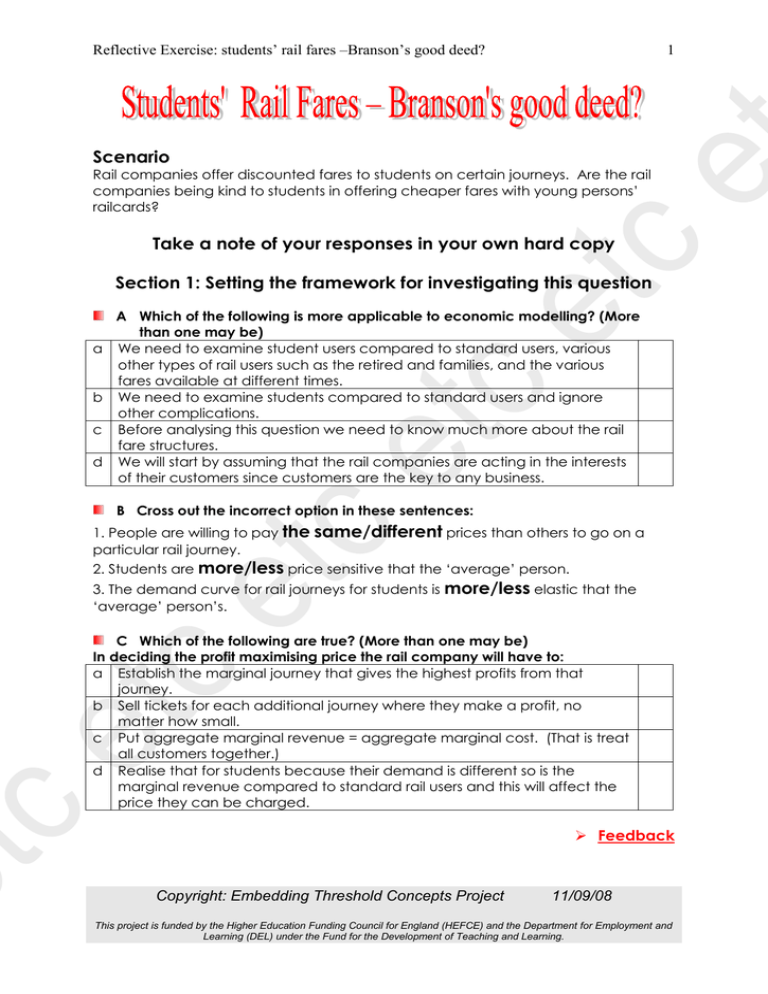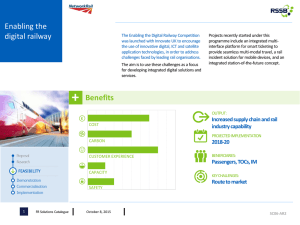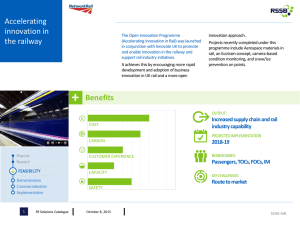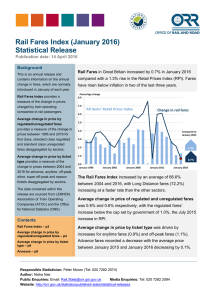Scenario Reflective Exercise: students’ rail fares –Branson’s good deed? 1
advertisement

Reflective Exercise: students’ rail fares –Branson’s good deed? 1 Scenario Rail companies offer discounted fares to students on certain journeys. Are the rail companies being kind to students in offering cheaper fares with young persons’ railcards? Take a note of your responses in your own hard copy Section 1: Setting the framework for investigating this question a b c d A Which of the following is more applicable to economic modelling? (More than one may be) We need to examine student users compared to standard users, various other types of rail users such as the retired and families, and the various fares available at different times. We need to examine students compared to standard users and ignore other complications. Before analysing this question we need to know much more about the rail fare structures. We will start by assuming that the rail companies are acting in the interests of their customers since customers are the key to any business. B Cross out the incorrect option in these sentences: 1. People are willing to pay the same/different prices than others to go on a particular rail journey. 2. Students are more/less price sensitive that the ‘average’ person. 3. The demand curve for rail journeys for students is more/less elastic that the ‘average’ person’s. C Which of the following are true? (More than one may be) In deciding the profit maximising price the rail company will have to: a Establish the marginal journey that gives the highest profits from that journey. b Sell tickets for each additional journey where they make a profit, no matter how small. c Put aggregate marginal revenue = aggregate marginal cost. (That is treat all customers together.) d Realise that for students because their demand is different so is the marginal revenue compared to standard rail users and this will affect the price they can be charged. Feedback Copyright: Embedding Threshold Concepts Project 11/09/08 This project is funded by the Higher Education Funding Council for England (HEFCE) and the Department for Employment and Learning (DEL) under the Fund for the Development of Teaching and Learning.


